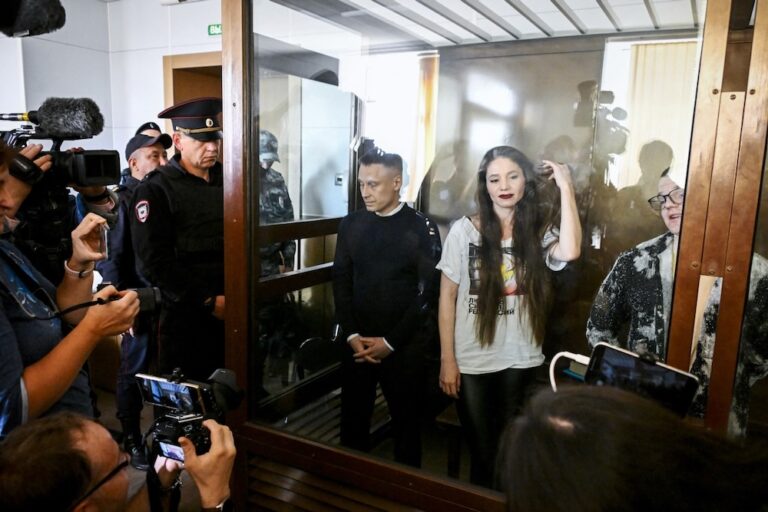(IPI/IFEX) – The following is a 6 December 2000 IPI press briefing: IPI WATCH LIST PRESS BRIEFING: RUSSIA On 7 December, the International Press Institute (IPI) sent a letter to Russian President Vladimir Putin expressing its concern at the methods employed during a search of the ORT Television offices (see attached). On 23 June 2000, […]
(IPI/IFEX) – The following is a 6 December 2000 IPI press briefing:
IPI WATCH LIST PRESS BRIEFING: RUSSIA
On 7 December, the International Press Institute (IPI) sent a letter to Russian President Vladimir Putin expressing its concern at the methods employed during a search of the ORT Television offices (see attached). On 23 June 2000, Russia was the first country to be placed on the “IPI Watch List”, due to several incidents of harassment and intimidation of the media. The following is a Press Briefing on the “IPI Watch List” and some of the major media freedom issues that occurred in Russia in the past year.
The “IPI Watch List”
Designed to detect regressive tendencies in countries around the world, the “IPI Watch List” is a twice-yearly report listing countries that appear to be moving towards suppressing or restricting press freedom. Significantly, the aim of the “IPI Watch List” is to force changes in attitude and legislation by focusing media attention on the offending countries.
In practice, countries will be placed on the list and their status evaluated twice a year by the Executive Board of IPI. After the evaluation, countries will either be removed from the list or face renewed efforts by IPI to bring about change. The Executive Board Members of IPI unanimously agreed to keep Russia on the “IPI Watch List” on 29 October 2000.
Freedom of the media issues in 2000
Even though President Vladimir Putin has expressed his commitment to freedom of expression, referring to it as an “unshakeable value” of Russian democracy, there have been a number of worrying incidents that appear to be part of a concerted effort by the government to extend its control over the media.
Among these are:
– The harassment of journalists covering the Chechen conflict. Examples of this harassment include: Andrei Babitsky’s detention by Russian troops in Chechnya and his conviction by a judge in Daghestan for violating Russian passport regulations; and the beating and detention by Russian troops of Ruslan Musayev, a local reporter, cameraman, and photographer for the Associated Press.
– Tax raids on media companies by armed and masked police, including the raid on Media-Most and its outlets and the raid on the offices of ORT Television.
– Intimidation of media outlets and journalists as a result of their reporting. Examples of this include; the arrest and imprisonment of editor Irina Grebneva in Vladivostok; and the forced closure of Sovershenno verno, a newspaper in Sakhalin Oblast, just before the gubernatorial election; and the search by the Federal Security Service of the offices of weekly Versija including the confiscation of a computer and documents.
– The adoption of the “Doctrine of the Information Security of the Russian Federation”, a document which contains recommendations for extending government control over certain unspecified information and, under special circumstances, provides for restrictions being placed on the free flow of information.
If you wish to contribute information on media issues to the “IPI Watch List” please contact Ömer Oguz: contact@freemedia.at
For more information on the IPI Watch List, including IPI’s report on Russia, see: www.freemedia.at/watch_list.htm


